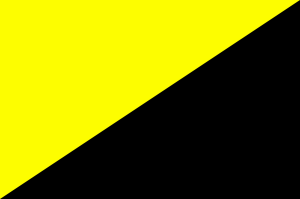 Freedom is the ability to do whatever want. Unfortunately, there are many things that might get in the way. Gravity prevents you from jumping over buildings like an old-school superman. Poverty could prevent you from travelling to southern Australia to see the little penguins that live there. Your love interest might prevent you from sleeping over even though you sent all of those romantic selfies.
Freedom is the ability to do whatever want. Unfortunately, there are many things that might get in the way. Gravity prevents you from jumping over buildings like an old-school superman. Poverty could prevent you from travelling to southern Australia to see the little penguins that live there. Your love interest might prevent you from sleeping over even though you sent all of those romantic selfies.
With so many constraints on how you can live, it is hard to imagine what it would be like if one were truly free. You could go anywhere and do anything. You would know everything, if you wanted to. These god-like powers would let you live your life exactly how you want. That is the ideal, so what is the reality?
Humans are nowhere near total freedom, but we have made great progress in improving freedom in some respects. Most prominently, new technology has continually pushed back the limits of nature. Access has improved to food, water, travel, information, and many other things that enable us to live more how we want. Science and technology free us in a very real sense, but they are not the only engines of progress. They are just part of a more general term for this type of freedom called capital. When most people talk about capital, they mean physical goods that allow people to do things: hammers, horses, and houses. Yet, capital can be other things too, like the knowledge of how to build a car, or the organizational structure that allows everyone in town to play soccer together, or the supply chains that keep cities fed every day without a farm in sight.
The relatively pleasant lives that people enjoy today, compared to five hundred years ago, is due primarily to the huge amounts of capital accumulated since then. Continue reading →
 The term capital is used in different ways in different contexts. In investment, it is how much wealth a person has. In business, it is the sum of your assets, or assets minus liabilities. In some economic contexts, it is any durable good that is used to produce other goods. In certain economic contexts, capital consists of anything that enhances your ability to perform economically useful work. So, anything that makes you productive would be considered capital. Some people prefer other definitions that exclude things like land and labor.
The term capital is used in different ways in different contexts. In investment, it is how much wealth a person has. In business, it is the sum of your assets, or assets minus liabilities. In some economic contexts, it is any durable good that is used to produce other goods. In certain economic contexts, capital consists of anything that enhances your ability to perform economically useful work. So, anything that makes you productive would be considered capital. Some people prefer other definitions that exclude things like land and labor.
 Sapiens is a high level summary of human history. It takes a look at not just our species of humans, but also the human species that our ancestors drove into extinction. While this book is not written from an anarcho-capitalist perspective by any stretch of the imagination, it should still be an enjoyable read for most ancaps for two reasons. First, without really intending to, it nicely summarizes the progress humans have made in our never-ending quest for freedom. Second, though the author cannot seem to help occasionally giving undue credit to government, the book conveys enough skepticism towards the state that an ancap can still appreciate the good parts.
Sapiens is a high level summary of human history. It takes a look at not just our species of humans, but also the human species that our ancestors drove into extinction. While this book is not written from an anarcho-capitalist perspective by any stretch of the imagination, it should still be an enjoyable read for most ancaps for two reasons. First, without really intending to, it nicely summarizes the progress humans have made in our never-ending quest for freedom. Second, though the author cannot seem to help occasionally giving undue credit to government, the book conveys enough skepticism towards the state that an ancap can still appreciate the good parts.



